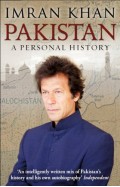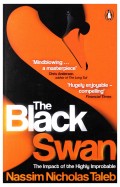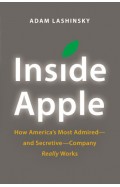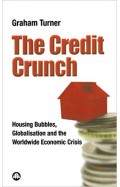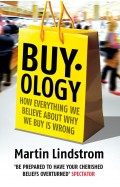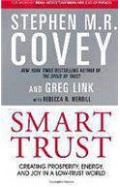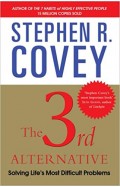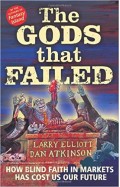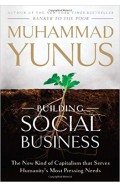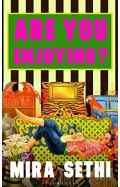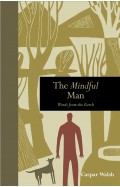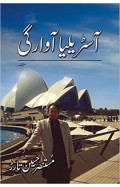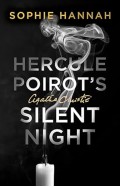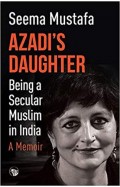War No More Eliminating Conflict in the Nuclear Age
By: Joseph Rotblat
-
Rs 1,610.75
- Rs 1,895.00
- 15%
You save Rs 284.25.
Due to constant currency fluctuation, prices are subject to change with or without notice.
Never before have so many people worried about the effects of military conflict. At a time when terrorism is opening the way for new forms of warfare worldwide, this book provides a much-needed account of the real dangers we face, and argues that the elimination of weapons of mass destruction and of war are attainable and necessary goals. Written by Nobel Peace prizewinner and former nuclear physicist Joseph Rotblat, and biologist/ psychologist Robert Hinde, War No More provides expert insight into the nature of modern warfare — including ‘weapons of mass destruction’. Examining the key factors that are believed to contribute to conflict, they explain how best to approach a peaceful future. If war is ever to be eliminated, Hinde and Rotblat argue that we must address key issues such as the gap between rich and poor; we must have fully effective arms controls; and above all we must have better education. The authors emphasize the United Nations — as well as non-governmental organizations, religious groups, and grassroots movements — also have important parts to play.
Joseph Rotblat was involved in the creation of the first atom bomb, but left the project during the war, when it became clear that Nazi Germany was not building its own bomb. Since the end of the Second World War he has dedicated his life to campaigning against nuclear weapons and co-founded the Pugwash conferences. Robert Hinde was a pilot in World War 2, is now a Cambridge University Professor and has written extensively on war and strategies for peace.
About the Author
Joseph Rotblat is a nuclear physicist who was involved in the creation of the first atom bomb. He left the project during the war, when it became clear that Germany was not building its own bomb. Since then he has dedicated his life to campaigning against nuclear weapons. He was awarded the Nobel Peace Prize in 1995 jointly with Pugwash conferences, the organization he helped to found. The Pugwash Conferences bring together, from around the world, influential scholars andpublic figures concerned with reducing the danger of armed conflict and seeking co-operative solutions for global problems. He is the author of 24 books.
Robert Hinde was an RAF pilot in WW2 and is now a professor at Cambridge University. He has written extensively on the causes of wars. He has lectured in Europe, the Americas and South Africa, has held the Hitchcock Professorship at the University of California, Berkeley, and is an honorary Foreign Associate of the National Academy of Sciences.
Table Of Contents
- 1 The Diversity of Wars
2 The Nuclear Peril
3 Other Weapons Of Mass Destruction
4 ‘Conventional’ Weapons What Makes War More Likely?
5 Causes of War and the Role of Weapons
6 The Political System and its Leaders
7 Culture and Tradition
8 Resources: Territory and the Environment
9 Economic Factors: Globalization and Poverty
10 War and Human Nature What Should Be Done To Eliminate War?
11 What Stops Countries from Going to War?
12 Preventing War: Arms Control
13 Preventing War: Promotion of International Well-Being and Peace Education
14 Organizations Involved in Prevention, Intervention and Conflict Resolution
15 Intervention and Conflict Resolution 16 Epilogue: Ending Conflict in the Nuclear Age
| Book | |
| What's in the Box? | 1 x War No More Eliminating Conflict in the Nuclear Age |
Never before have so many people worried about the effects of military conflict. At a time when terrorism is opening the way for new forms of warfare worldwide, this book provides a much-needed account of the real dangers we face, and argues that the elimination of weapons of mass destruction and of war are attainable and necessary goals. Written by Nobel Peace prizewinner and former nuclear physicist Joseph Rotblat, and biologist/ psychologist Robert Hinde, War No More provides expert insight into the nature of modern warfare — including ‘weapons of mass destruction’. Examining the key factors that are believed to contribute to conflict, they explain how best to approach a peaceful future. If war is ever to be eliminated, Hinde and Rotblat argue that we must address key issues such as the gap between rich and poor; we must have fully effective arms controls; and above all we must have better education. The authors emphasize the United Nations — as well as non-governmental organizations, religious groups, and grassroots movements — also have important parts to play.
Joseph Rotblat was involved in the creation of the first atom bomb, but left the project during the war, when it became clear that Nazi Germany was not building its own bomb. Since the end of the Second World War he has dedicated his life to campaigning against nuclear weapons and co-founded the Pugwash conferences. Robert Hinde was a pilot in World War 2, is now a Cambridge University Professor and has written extensively on war and strategies for peace.
About the Author
Joseph Rotblat is a nuclear physicist who was involved in the creation of the first atom bomb. He left the project during the war, when it became clear that Germany was not building its own bomb. Since then he has dedicated his life to campaigning against nuclear weapons. He was awarded the Nobel Peace Prize in 1995 jointly with Pugwash conferences, the organization he helped to found. The Pugwash Conferences bring together, from around the world, influential scholars andpublic figures concerned with reducing the danger of armed conflict and seeking co-operative solutions for global problems. He is the author of 24 books.
Robert Hinde was an RAF pilot in WW2 and is now a professor at Cambridge University. He has written extensively on the causes of wars. He has lectured in Europe, the Americas and South Africa, has held the Hitchcock Professorship at the University of California, Berkeley, and is an honorary Foreign Associate of the National Academy of Sciences.
Table Of Contents
- 1 The Diversity of Wars
2 The Nuclear Peril
3 Other Weapons Of Mass Destruction
4 ‘Conventional’ Weapons What Makes War More Likely?
5 Causes of War and the Role of Weapons
6 The Political System and its Leaders
7 Culture and Tradition
8 Resources: Territory and the Environment
9 Economic Factors: Globalization and Poverty
10 War and Human Nature What Should Be Done To Eliminate War?
11 What Stops Countries from Going to War?
12 Preventing War: Arms Control
13 Preventing War: Promotion of International Well-Being and Peace Education
14 Organizations Involved in Prevention, Intervention and Conflict Resolution
15 Intervention and Conflict Resolution 16 Epilogue: Ending Conflict in the Nuclear Age
War No More Eliminating Conflict in the Nuclear Age
By: Joseph Rotblat
Rs 1,610.75 Rs 1,895.00 Ex Tax :Rs 1,610.75
Zubin Mehta: A Musical Journey (An Authorized Biography)
By: VOID - Bakhtiar K. Dadabhoy
Rs 892.50 Rs 1,050.00 Ex Tax :Rs 892.50
Sub Say Pehlay Pakistan Book - (HB)
By: Pervez Musharraf
Rs 1,165.50 Rs 1,295.00 Ex Tax :Rs 1,165.50
The Black Swan The Impact Of The Highly Improbable
By: Nassim Nicholas Taleb
Rs 2,965.50 Rs 3,295.00 Ex Tax :Rs 2,965.50
Inside Apple How Americas Mo Admired And Secretive Company Really Works
By: Adam Lashinsky
Rs 1,147.50 Rs 1,350.00 Ex Tax :Rs 1,147.50
Buyology How Everything We Believe About Why We Buy Is Wrong
By: Martin Lindstrom
Rs 2,695.50 Rs 2,995.00 Ex Tax :Rs 2,695.50
The 3rd Alternative Solving Life s Most Difficult Problems
By: Stephen Covey
Rs 675.75 Rs 795.00 Ex Tax :Rs 675.75
Building Social Business The New Kind Of Capitalism That Serves Humanitys Most Pressing Needs
By: Muhammad Yunus
Rs 400.00 Ex Tax :Rs 400.00
Sub Say Pehlay Pakistan Book - (HB)
By: Pervez Musharraf
Rs 1,165.50 Rs 1,295.00 Ex Tax :Rs 1,165.50
Words of Art: A Game That Illuminates Your Mind
By: Gund Cat
Rs 4,495.50 Rs 4,995.00 Ex Tax :Rs 4,495.50
Asutralia Awargi (Urdu Edition)
By: Mustansar Husain Tarar
Rs 1,260.00 Rs 1,400.00 Ex Tax :Rs 1,260.00
Hercule Poirot's Silent Night - The New Hercule Poirot Mystery
By: Sophie Hannah
Rs 2,965.50 Rs 3,295.00 Ex Tax :Rs 2,965.50
Prophetic Etiquettes for All aspects of Life
By: Hazart Mufti Abu Bakr Ibn Mustafa Patni
Rs 2,000.00 Ex Tax :Rs 2,000.00
Azadi’s Daughter, A Memoir: Being a Secular Muslim in India
By: Seema Mustafa
Rs 1,346.25 Rs 1,795.00 Ex Tax :Rs 1,346.25
Zubin Mehta: A Musical Journey (An Authorized Biography)
By: VOID - Bakhtiar K. Dadabhoy
Rs 892.50 Rs 1,050.00 Ex Tax :Rs 892.50
War No More Eliminating Conflict in the Nuclear Age
By: Joseph Rotblat
Rs 1,610.75 Rs 1,895.00 Ex Tax :Rs 1,610.75
Sub Say Pehlay Pakistan Book - (HB)
By: Pervez Musharraf
Rs 1,165.50 Rs 1,295.00 Ex Tax :Rs 1,165.50












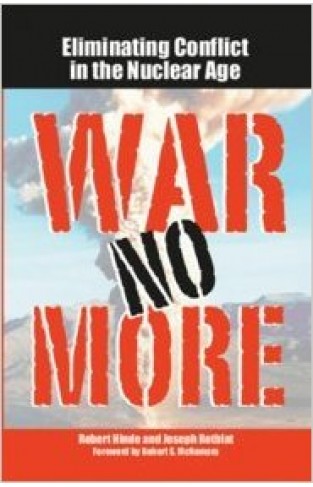
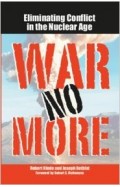
-120x187.jpg?q6)





-120x187.jpg?q6)
